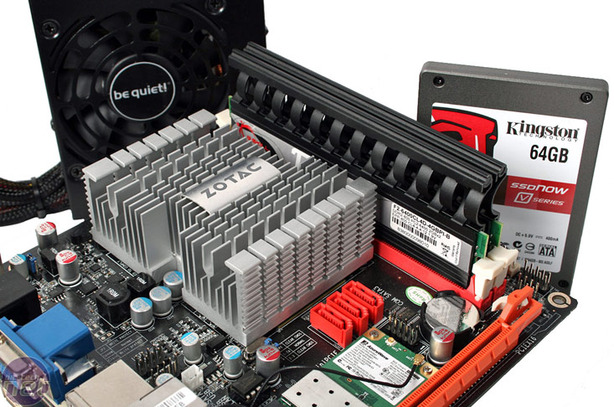Building an Ion-powered Linux Media PC
December 3, 2009 | 12:46

So what have we learnt?
Our Linux-powered Ion machine is small and played everything we threw at it. Ubuntu and Boxee take some getting used to, but once set up with the latest Nvidia drivers it's a very capable media PC.The only downside is the lack of GPU video acceleration for Adobe Flash, which limits HD playback in the browser, because Intel's Atom CPU cannot handle the workload. We doubt Ion acceleration will arrive soon, if ever, on Linux, as Adobe is currently using Microsoft's proprietary DXVA (DirectX Video Acceleration) protocol to enable h.264 decoding within Flash on the GPU in Windows. And even that's still being worked on.
With regards to Blu-ray playback, you'll probably need to go down the Windows route, and Boxee certainly isn't ideal as the sole choice for anyone with a large collection of discs.
The downsides of the Zotac board is that it is expensive at around £130 - for that money you could get a micro-ATX AMD 785G and high performance, but low power 45W CPU. The performance margin will shoot up, allowing full HD Flash video easily, but so will the overall power consumption and AMD doesn't currently offer GPU acceleration in its Linux drivers. Alternatively, you could find a slightly older Nvidia GeForce 8200/8300 motherboard and pair that with an AMD CPU for the same money and have the same driver support as the Zotac Ion motherboard.
Clearly there's a dozen ways to skin a cat. Or, peel a potato, if you're animal friendly. There's no one formula for a HTPC, because everyone has very specific requirements in terms of media storage and consumption, but we felt our machine worked really rather well.
Hardware aside, I love what Boxee has become and how well it works, but I feel it's lacking just a few of the tweaks and customisations I'm personally quite used to from running a Windows media PC with FFDshow. Maybe I'm just spoiled and most people don't care as long as it works? Who knows.
What I, and everyone else in the office, aren't fussed with is Boxee's insistence on things being social. For starters, Boxee is still under the necessary critical mass to make that work, but even then, we just don't care. The problem is we are bombarded with too much information already - selective community services like Twitter and Facebook seed realtime information about my friends lives. As in, all of it. Not just TV.
Do we need another service layered on top? If someone I know likes the new season of Scrubs, they will Twitter it, put it on Facebook, text me, email me, call me, or even tell me in person. Unless you're bored out of your skin and want other people to tell you what to watch instead of channel hopping the TV, I still fail to see the social benefits. Despite already gathering a small, but hardcore following in the States, Boxee would be better off concentrating on its strengths: the great interface with fantastic direct service provision, and not pandering to web 2.0 trends.

MSI MPG Velox 100R Chassis Review
October 14 2021 | 15:04









Want to comment? Please log in.